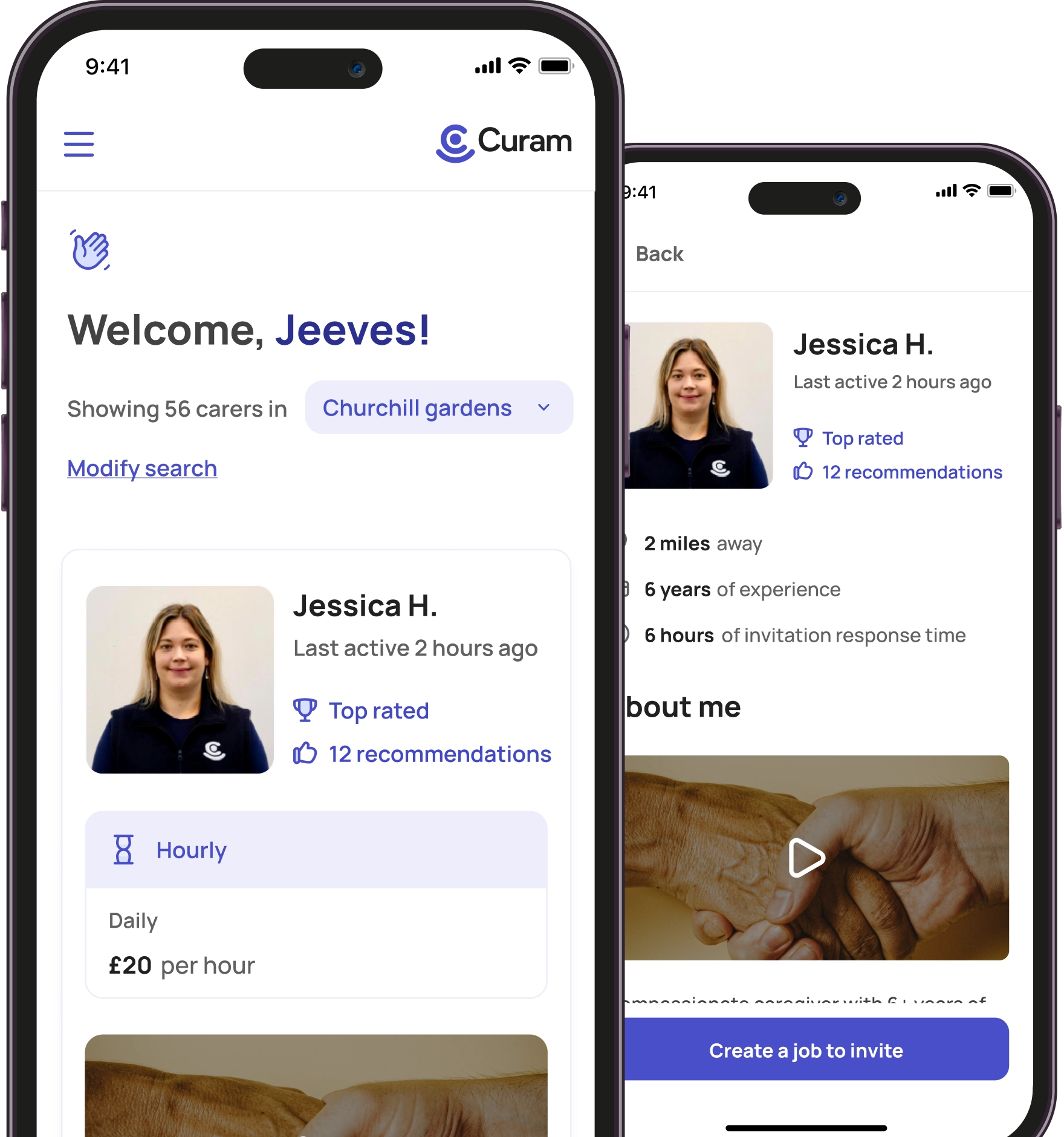Mayank Jeshti
September 08, 2023

![]()
Introducing our Curam Ambassador, Ashley-Louise. A professional carer and mum of two girls, Ashley-Louise has 11 years of experience in the care industry. Before Curam she worked for agencies but found that the low pay made it difficult to make ends meet, however working alongside Curam has given her the pay she requires plus the added flexibility of choosing her own shifts and clients.
Given all the amazing experience Ashley-Louise has had, she is ideally positioned to bring you insightful, helpful updates and tips on hot-button topics surrounding the care sector and can offer a unique insight into the life of our amazing carers.
Mental health is simply the health of our mind and emotions. It’s so important to recognise when we’re struggling and look after our emotional health.
In the past, talking about your mental health was considered a taboo subject, which means people can sometimes feel anxious about sharing how they feel. Our mental health is just as important, if not more than our physical health.
Stress affects everyone differently. It can impact our mind, body and even our sleep. Everyone’s capacity for managing stress varies. What one person might find incredibly hard to cope with, another may not be fazed by. This is why it’s important not to compare yourself to others as everyone is different.
Let’s unpack this further, if you compared yourself to the person next to you. How far do you think they could run? What’s the maximum weight they could lift? The results of this comparison would be very different. Some people can lift 50kg but find it difficult to run more than 5 metres, whilst another person can lift 10kg but could complete a marathon with ease. This shows how different and individual each person's physical health is, and the same goes for our mental health.
‘Good’ mental health will have different meanings for all of us. Feeling good physically and mentally isn’t always the easiest thing to maintain. From anxieties surrounding the news to personal problems and the trials and tribulations of day-to-day life, it can be hard to maintain your mental health and take time to look after yourself. Having good mental health doesn’t mean you always have to be in a good mood and happy all the time, but there are little things you can do to check in with yourself and improve your mental well-being.
Here are a few different ways stress can affect both your mental and physical health.
-
Your Mind
You may feel demotivated and unable to relax and enjoy things you used to. You may feel overwhelmed or trapped, agitated, or lethargic or just more emotional than usual. You may find yourself dissociating from those you love or have so much on your mind you struggle to concentrate.
-
Your Body
Often, we experience symptoms and signs that our body is trying to tell us we are struggling; aches and pains, feeling fatigued, palpitations, sweating more, shaking and trembling.
-
Sleep
You may experience a change in sleeping patterns. This can show prominence in struggling to get off to sleep, not sleeping well or even having too much sleep might be a sign that you are struggling with your mental health.
Knowing yourself and your limits will help you to maintain a strong mind and well-being and identifying when you might be struggling is often the first step to feeling better.
Of course, everyone's mental health is different and experiencing one or two of these symptoms doesn’t necessarily mean you are struggling. If you are going through a period of extreme change or stress in your life or you’re worried about something, it’s normal to experience some of these signs. However, if you feel like this for more than two weeks, you should seek help.
Here are my top tips for easing stress and to help maintain a healthy mind:
-
Stay active, even just getting out for a short walk can make a world of a difference to how you feel
-
Don’t forget to breathe—you can find some NHS breathing exercises here.
-
A problem shared is a problem halved. Talk to the people around you.
-
Get some headspace by simply writing a list. Jot down all the things that are worrying you or causing you stress. Breaking this down can help you to work through each thing.
-
Take some time for yourself. Even if it’s just 15 minutes, prioritising time to do something you enjoy or to just relax is essential.
For further help and advice take a look at these charities and self-help pages:
Remember, we must take care of ourselves to be able to look after someone else.
 Back
Back






